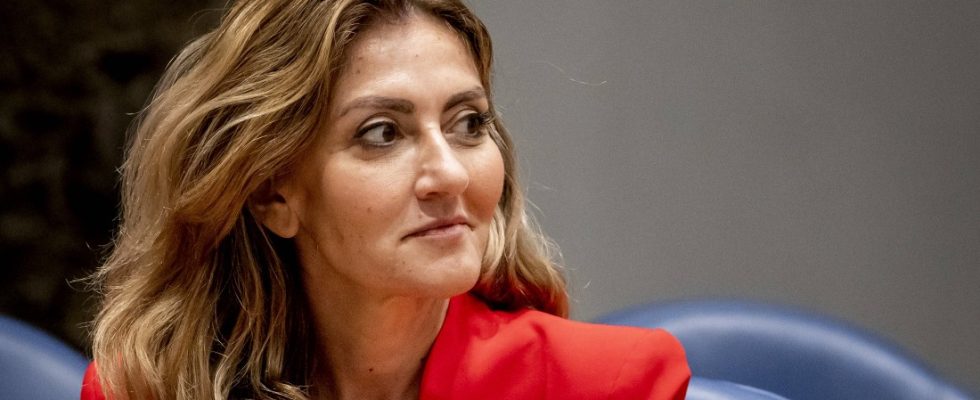Dilan Yeşilgöz has a lot in common with Mark Rutte, whom she is now to succeed as head of the right-wing liberal VVD. She is also known to be very concerned about her image. But she hasn’t yet managed the poker face that the acting prime minister always masters so perfectly. When Yeşilgöz was asked by a TV station on Tuesday if she wanted to compete, her eyes and body language immediately revealed that the matter was long overdue at that point. She’s ready, she said.
And indeed, soon after, Edith Schippers and Klaas Dijkhoff, both former ministers who have been well-respected up to now, declared that they were not available. When faction leader Sophie Hermans, Rutte’s former assistant, waved her hand, the party leadership’s official support for Yeşilgöz on Thursday was only a matter of form. The way is clear for the 46-year-old, who has good prospects of becoming the next Prime Minister of the Netherlands.
Yeşilgöz came to the Netherlands at the age of seven with his mother and sister, who succeeded the father, a Kurdish human rights activist. She grew up in Amersfoort, studied cultural studies, rose in the city administration of Amsterdam. Politically, she was initially drawn to left-wing and green parties before she joined the VVD and discovered the topic of freedom for herself. She has been a member of parliament since 2017, and Yeşilgöz has been Minister of Justice since January 2022, the first non-lawyer to head the House.
She is considered a hardliner in the fight against crime
True to the VVD tradition of law and order, she has made a name for herself as a hardliner in the fight against crime. What moves her most, she revealed with the topic she chose for the famous HJ-Schoo lecture last year: “Woke culture”. This “exaggerated form of political correctness” threatens the rule of law, she said, because people presume to decide about true and false, good and bad. A tougher asylum policy is also important to Yeşilgöz. The coalition’s internal talks on this have taken place in recent weeks under her direction. Rutte took the fact that left-wing liberals and the small Christian Union refused to tighten the rules on family reunification as a reason to let the alliance collapse.
At the weekend, Yeşilgöz defended the position of the VVD on television, which wants to return to the usual division of asylum seekers in the EU into political refugees and war refugees, who will return to their homeland in the foreseeable future. In the case of the latter, only a few relatives should be allowed to follow. Yeşilgöz indicated that multiple family members are a bigger problem: in other words, cases in which people who are family members bring other family members to the Netherlands, for example through a new marriage. In reality, however, according to experts, this only happens very rarely.
Yeşilgöz had landed on the Greek island of Kos at the time
Earlier statements by Yeşilgöz have come to light in recent days, documenting a remarkable change in her attitude towards asylum policy. In 2004, she wrote in a column for the Socialist Party that she was grateful for the “big matzel” she had as a child who followed her and for the generosity of the host country at the time, of which little is left. “I would like to offer other refugees the opportunities that were offered to me in the Netherlands,” she wrote. Yeşilgöz landed from Turkey by boat on the Greek island of Kos and traveled on from there by plane. She is aware that today she would have ended up in a first arrival center “where life has stood still for years”.
It will now be some time before Yeşilgöz’s next possible career leap. When the elections are held in November, a party group has to come together, which experience has shown to take a long time in the Netherlands. A lot can happen before then. The VVD and the Citizens’ Farmers’ Movement are currently ahead in polls. In terms of political profile, a coalition of the two parties and the Christian Democrats led by Yeşilgöz would be the obvious option.
While her star is rising, Finance Minister Sigrid Kaag from the left-liberal D66 is now leaving the political stage after Rutte. She repeatedly cited the threats and harassment she was exposed to as the reason for her tiredness with politics, which she no longer wanted to put up with her family. However, Kaag, for a long time the great hope of her party, has also failed politically. In the last election she had achieved an excellent result for D66. After that, she did not manage to distance herself from Rutte, who was involved in scandals, as many party friends would have expected of her.

